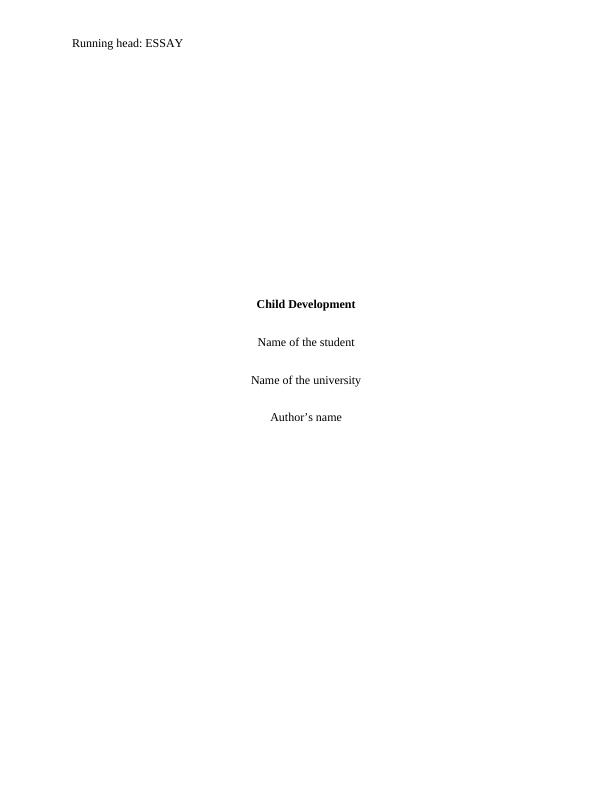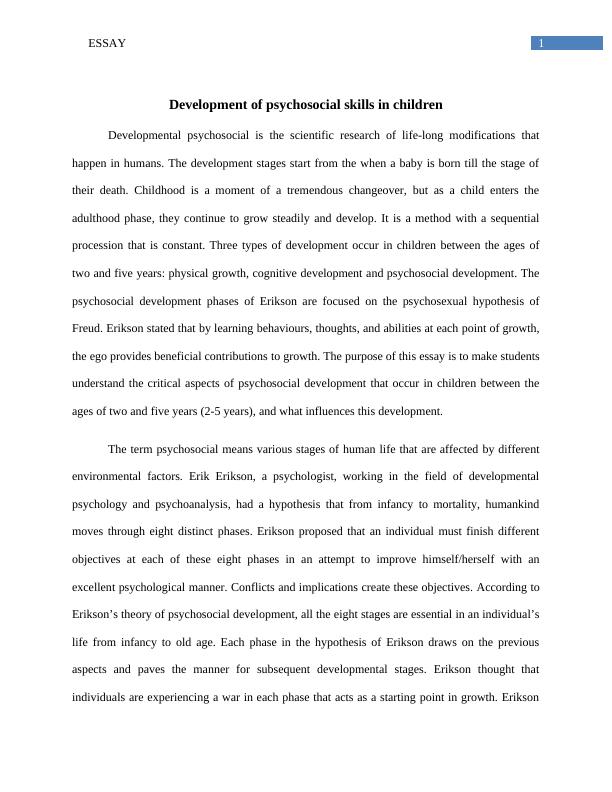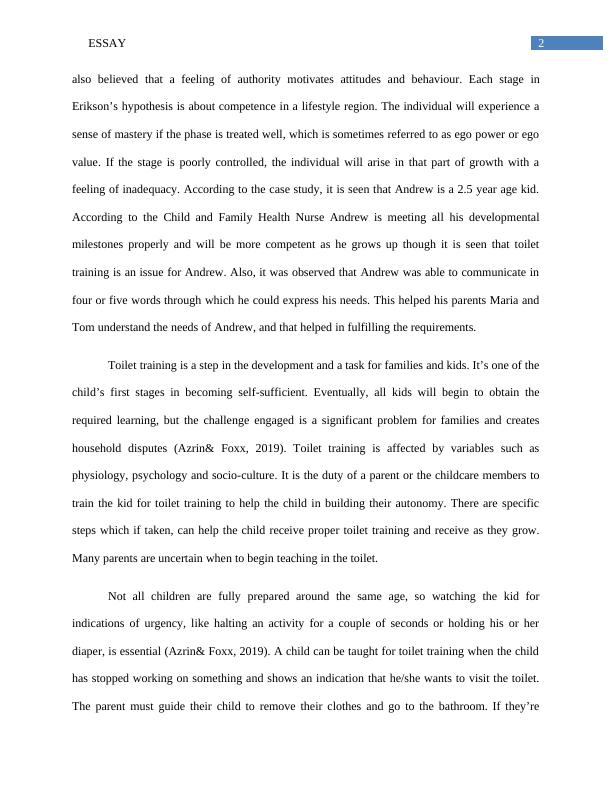Development of psychosocial skills in children
Describe/discuss what psychosocial development involves and then explain two or three examples of psychosocial (or social) development for the age group. Make reference to the case study. Explore two to three aspects of social development in the case study as examples. Refer to the work of one or more theorists.
6 Pages1727 Words80 Views
Added on 2022-11-17
About This Document
This essay discusses the critical aspects of psychosocial development that occur in children between the ages of two and five years, and what influences this development. It also talks about the toilet training process and how it affects the child's autonomy.
Development of psychosocial skills in children
Describe/discuss what psychosocial development involves and then explain two or three examples of psychosocial (or social) development for the age group. Make reference to the case study. Explore two to three aspects of social development in the case study as examples. Refer to the work of one or more theorists.
Added on 2022-11-17
ShareRelated Documents
End of preview
Want to access all the pages? Upload your documents or become a member.
Child Development: Essential Characteristics of Psychosocial Skill Improvement in Children of Age 2-5 Years
|9
|2335
|497
Human Development Case Study 2022
|7
|2181
|18
Early Infancy Psychosocial Development: A Case Study of Andrew
|9
|1776
|149
Psychological Development of a Child Assignment 2022
|8
|2019
|19
Psychosocial Development in Children: A Case Study of Andrew
|8
|1607
|478
Psychosocial Development
|7
|1873
|476



